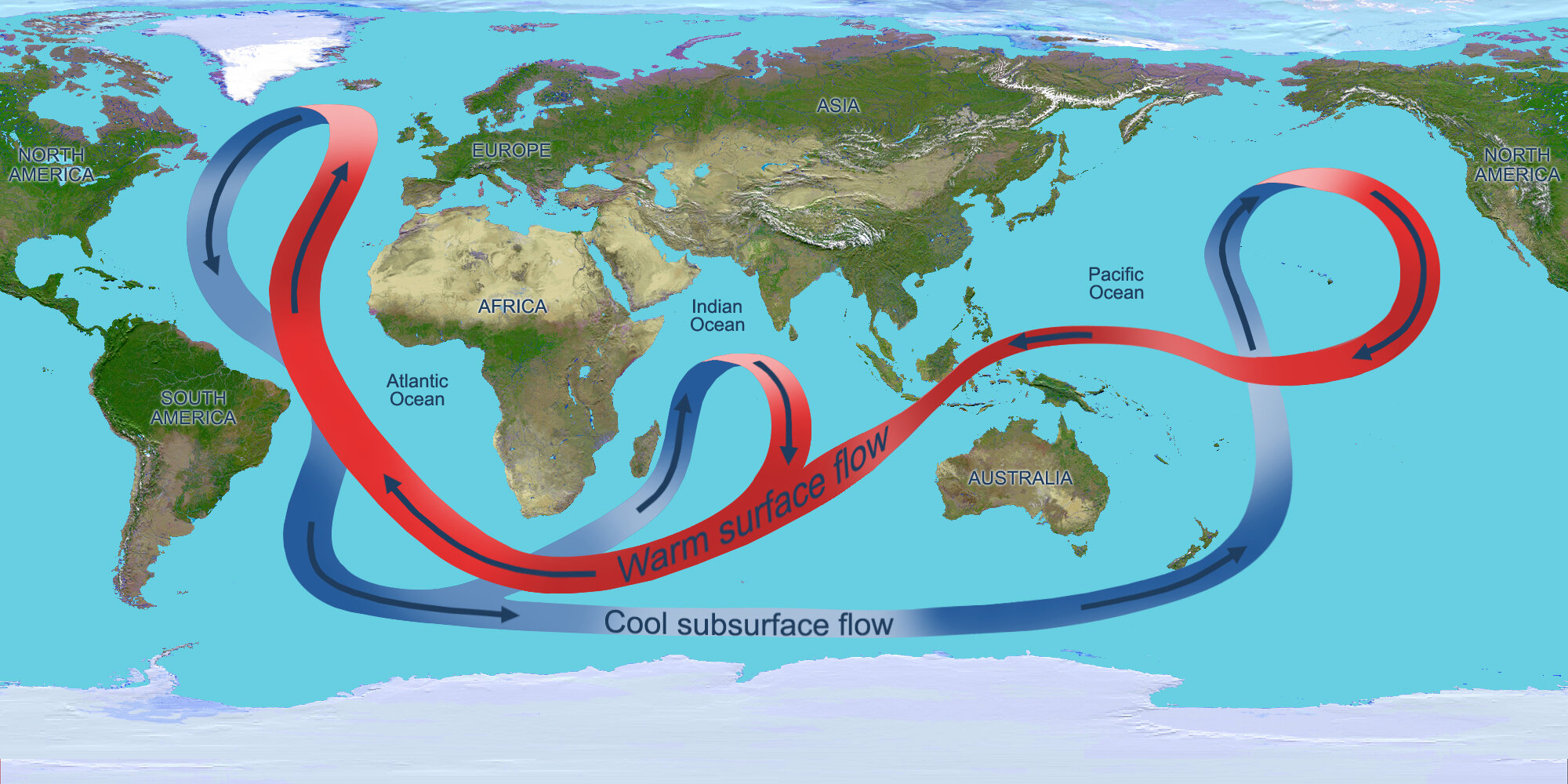The Atlantic Ocean current system, known as AMOC, faces a potential collapse due to the climate crisis. This system significantly influences Europe’s climate, and recent research from the University of Utrecht indicates that accelerated global warming is intensifying this threat.
Importance of AMOC
AMOC is a flow in the Atlantic that transports water, nutrients, and heat from the southern to the northern hemisphere, impacting European climate. The system’s slowdown could lead to significant changes in temperatures and precipitation patterns.
Altered Flow Due to Climate Crisis
Research, published in Sciences Advances, highlights that the influx of freshwater, primarily from melting Greenland ice and climate-induced changes in rainfall, is disrupting the AMOC flow. The changing ocean salinity and density weaken the Atlantic current.
Potential Consequences
Experts suggest that Europe may experience a paradoxical cooling effect due to the weakened AMOC. This could lead to winter temperature drops ranging from 10ºC to 30ºC, affecting weather patterns, rainfall distribution, and sea levels. The collapse may occur within this century, with the system potentially entering a coma over the coming decades.
Unanticipated Impact
The study reveals that the consequences of the Atlantic current change were underestimated in previous scientific assessments. The continuous melting of ice contributes freshwater to the ocean, altering its density and accelerating the AMOC slowdown.
Adverse Effects on Europe
Paleoclimatic studies indicate that periods of slower AMOC circulation in history coincided with colder periods in Europe. However, the current situation, with heightened greenhouse gas levels and global warming, presents a different and potentially more severe scenario.
Urgency and Unavoidable Consequences
Scientists emphasize that, based on projections, realistic adaptation measures may not effectively cope with the rapid temperature changes accompanying a collapse of the AMOC. This could result in a swift cooling of the northern hemisphere.
Stefan Rahmstorf from the Potsdam Institute for Climate Impact Research asserts that the research findings are not unrealistic, supported by data rather than being a speculative future projection. The scientific community acknowledges the urgency and potential severity of the situation.
Comparison with Previous Studies
In contrast to previous hypothetical simulations, the recent research utilizes realistic data derived from observations of the South Atlantic, providing a more accurate representation of the potential collapse of the AMOC.

